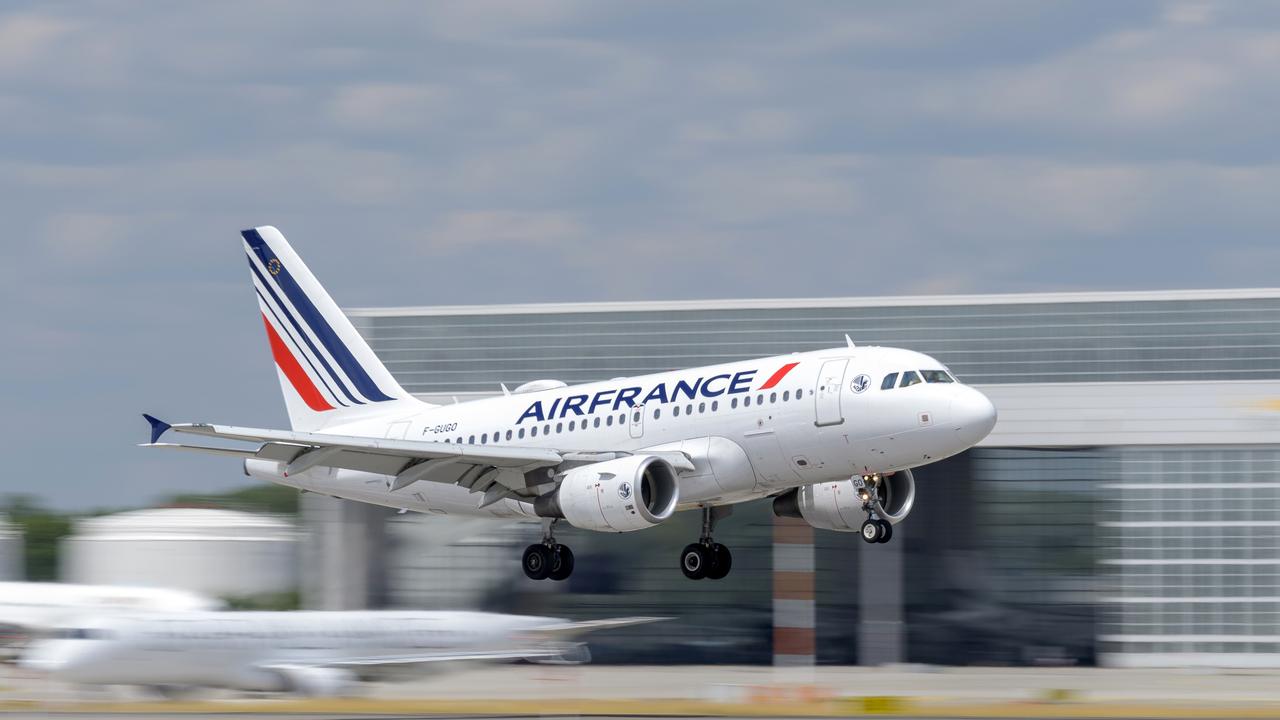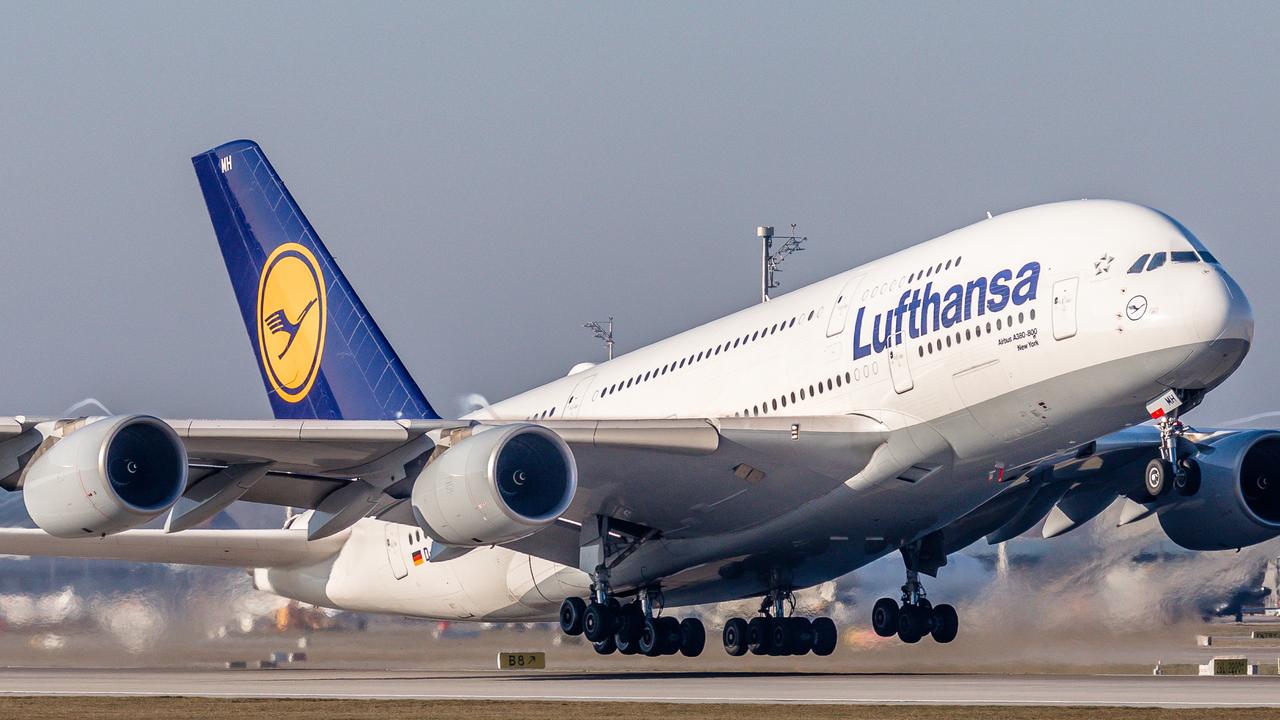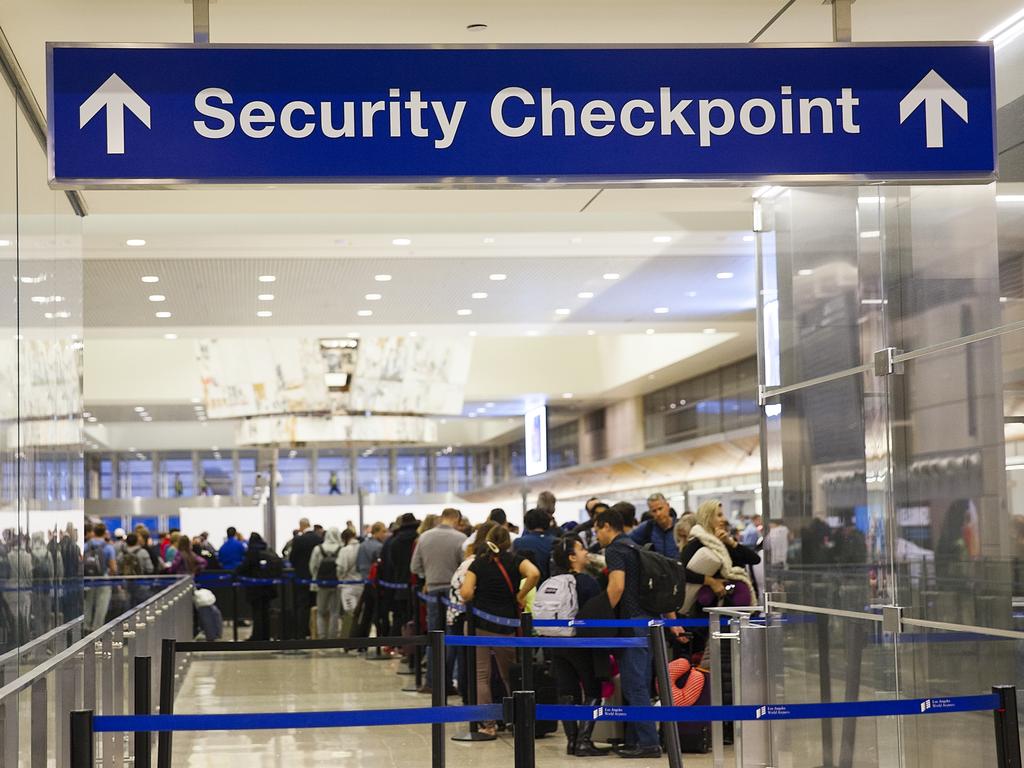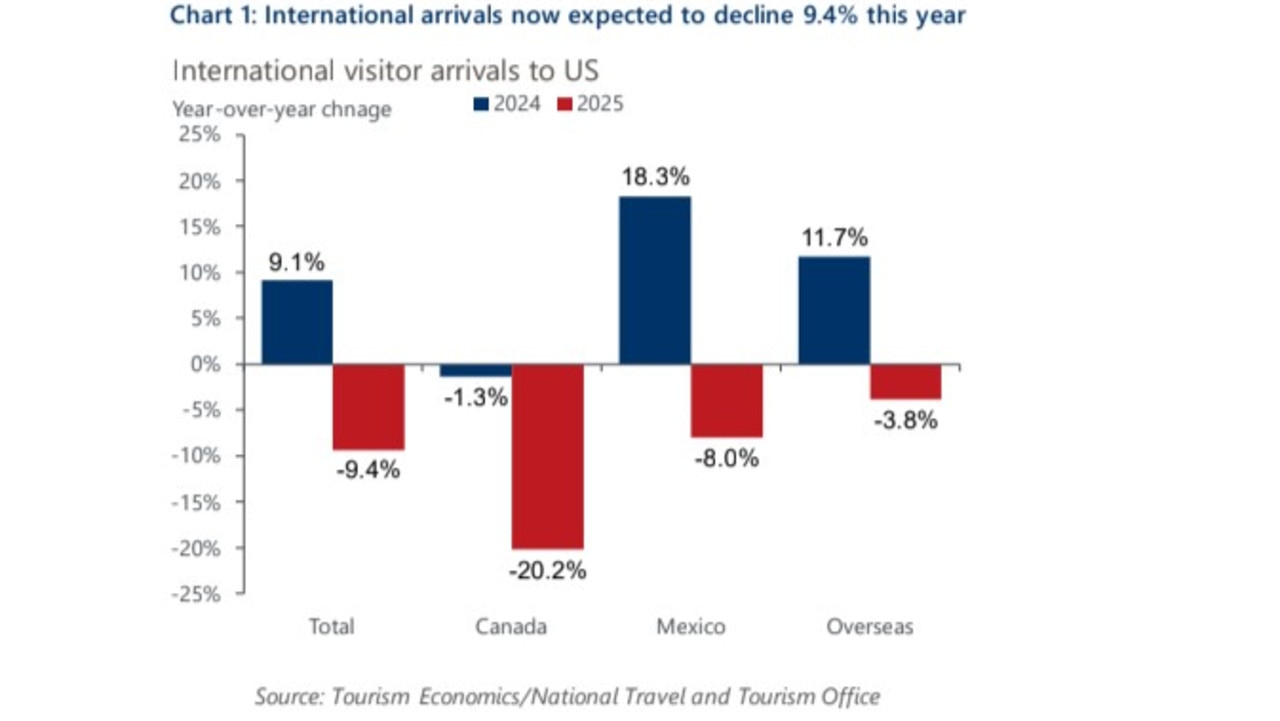Two major airlines reveal low US tourist demand
Two major airlines have reported a downturn in US-bound flights, despite White House’s claim the travel industry is booming.
Two of Europe’s largest carriers have reported a downturn in transatlantic bookings for US-bound flights, despite the White House’s travel boom claim.
This week, both Air France-KLM and Lufthansa reported a drop in Europeans heading to the US following President Donald Trump’s trade policies and border crackdowns that have also impacted Aussies’ plans.
The Trump administration has repeatedly denied any claims of a hit to the travel industry caused by its immigration policies, however figures from the National Travel and Tourism Office revealed the number of visitors has dropped 11.6 per cent in March as deportations and tariffs make the US a less appealing destination.
Tourism Economics noted international travel to the US will fall by 15.2 per cent in 2025 and visits from countries like Germany and Spain have already dropped by more than 25 cent this spring.
However, Trump explained this “not a big deal” and that “tourism is way up”.

“Oh, sure, tourism’s doing very well,” Trump told America journalist and ABC reporter Terry Moran after he corrected the claim that visitor numbers were up. “We’re doing very well. Wait [un]til you see the real numbers come out six months from now.”
While Americans are increasingly travelling to Europe, it’s not being replicated with both Air France-KLM and Lufthansa, noting a slight shift in booking patterns due to high costs, visa delays and the lingering effects of global trade tensions.
As reported by the Financial Times, Air France-KLM saw a 2.4 per cent decline in transatlantic bookings from Europe to the US for May and June, while demand from American travellers heading to Europe increased by 2.1 per cent.
“We know there are a lot of customers that are holding back in buying tickets for a little more clarity on … the border, and things like that,” Air France-KLM CEO Ben Smith told investors in an April 29 earnings call.

In its own earnings call on April 28, Lufthansa flagged a “slight weakening”, but added it will return to normal numbers by the end of 2025.
“When it comes to vacation trips to the US, especially from the German, Austrian, and Swiss markets, it’s easy to imagine conversations around the kitchen table where families are saying ‘we don’t know yet if we really want to go’,” the airline’s chief executive Carsten Spohr said.
Spohr did say, however, he hoped the recent softening in the White House’s rhetoric on tariffs would lead to a pick-up in demand later in the year.
“The discussions about tariffs are no longer as heated as they were four weeks ago,” he told analysts, according to the Daily Mail.

“That is why we believe that some of these bookings will be recovered in the coming weeks.”
Despite this, the airline still intends to cut back its plans to expand the amount of transatlantic flights from 6 per cent to 3 per cent by the final quarter of the year, establishing a task force to adjust flight schedules if demand continues to soften.
According to Tourism Economics travel to the US from Germany and Spain has fallen by 30 per cent and 25 per cent, respectively, in March.
Fewer Australians are already travelling to the US

Meanwhile, March saw the sharpest drop in Australians travelling to the US since during the height of the Covid pandemic, according to US International Trade Administration statistics.
Australian visitor numbers fell 7 per cent in March this year, compared to March 2024 — the biggest drop since March 2021.
Foreign traveller arrivals in the US are expected to sharply decline this year, according to Tourism Economics.
The travel data company revised its outlook after Donald Trump’s sweeping tariffs announcement on April 2 — forecasting a 9.4 per cent decline in international visitor arrivals.

Their spending is expected to decline 5 per cent, representing a loss of $9 billion in spending.
Tourism Economics’ report says decisions from the Trump Administration are creating a “negative sentiment shift toward the US among travellers” — with Mr Trump’s stance on border security and immigration one of the factors cited as discouraging visits.
James Robertson, head of global security for the firm International SOS, told news.com.au the company’s overall security case folio for the US (people wanting advice before travelling or while already over there) had tripled from January to April, compared to the same period last year.
He said the Los Angeles wildfires were responsible for some of that spike, but so was Mr Trump’s border crackdown.
Ms Vincenty said Worldwide Migration Partners had seen “a huge drop” in clients wanting to go to the US.
“We handle immigration in both directions. We’ve seen a big drop in inquiries about visas to go the US and a huge uptick in people wanting to come back to Australia and bring their families,” she said.
“That’s only happened in the last 60 days. We get hundreds of calls in a month so we can kind of see the trend and that’s absolutely what the trend is.”
– with Chantelle Francis






